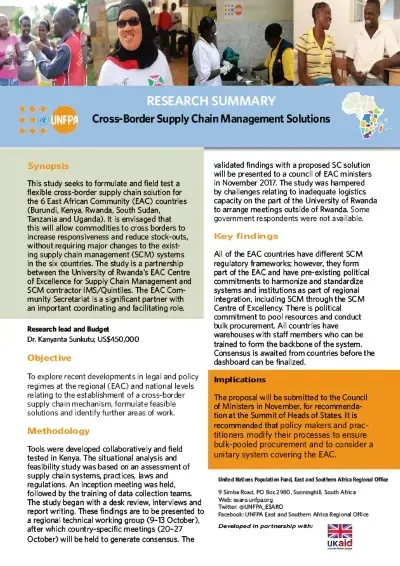This study seeks to formulate and field test a flexible cross-border supply chain solution for the 6 East African Community (EAC) countries (Burundi, Kenya, Rwanda, South Sudan, Tanzania and Uganda). It is envisaged that this will allow commodities to cross borders to increase responsiveness and reduce stock-outs, without requiring major changes to the existing supply chain management (SCM) systems in the six countries.
The objective was to explore recent developments in legal and policy regimes at the regional (EAC) and national levels relating to the establishment of a cross-border supply chain mechanism, formulate feasible solutions and identify further areas of work.
Key findings include: All of the EAC countries have different SCM regulatory frameworks; however, they form part of the EAC and have pre-existing political commitments to harmonize and standardize systems and institutions as part of regional integration, including SCM through the SCM Centre of Excellency. There is political commitment to pool resources and conduct bulk procurement. All countries have warehouses with staff members who can be trained to form the backbone of the system.





